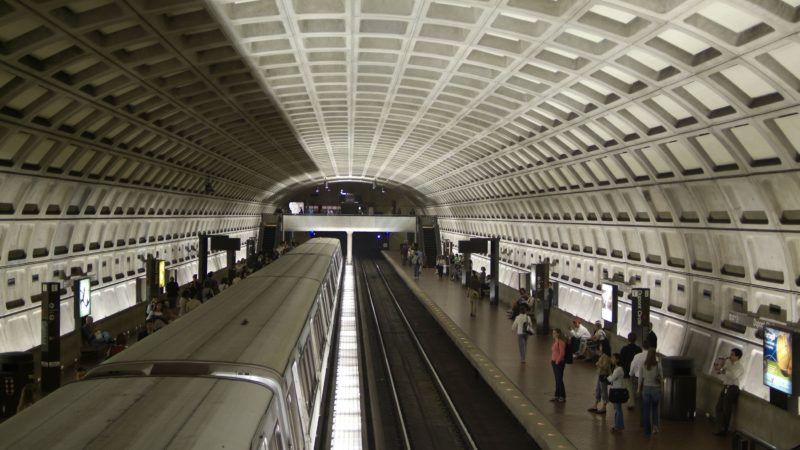Last Week, the Public Transit Industry Asked for $12.8 Billion in Emergency Funding. The Senate GOP Relief Bill Gives Transit $20 Billion. House Dems Want $25 Billion.
The public transit bailout is spiraling out of control.

The cost of the federal government's bailout of America's public transit agencies continues to grow, with some members of Congress proposing to give the industry twice the amount of taxpayer aid it was requesting just one week ago.
Last Tuesday, the American Public Transportation Association (APTA) urged Congress to support a $12.8 billion emergency aid package for transit agencies suffering increased costs and cratering revenue during the COVID-19 pandemic. On Thursday, APTA raised its demand to $16 billion, to make up for $14 billion in lost revenue plus $2 billion in increased operating costs.
"It cannot be overstated—without these funds, the overwhelming majority of public transit agencies will be required to either drastically curtail services or suspend services altogether. The time to act is now," said APTA President Paul Skoutelas in a press release.
On Friday, Reps. Chuy Garcia (D–Ill.) and Gwen Moore (D–Wis.) sent a letter co-signed by 52 other House Democrats to House and Senate leadership requesting $16 billion be included in any COVID-19 relief package. By Sunday, when Senate Majority Leader Mitch McConnell (R–Ky.) released a draft version of the Coronavirus Aid, Relief, and Economic Security Act (CARES) Act, it budgeted $20 billion in emergency relief for public transportation. The language of the bill strongly encourages, but does not require, that transit agencies spend this money on COVID-19-related expenses.
The bill would distribute this money through existing formula grant programs, giving $16 billion to urban transit agencies plus another $4 billion to rural ones. For comparison's sake: The federal grant programs that the CARES Act would funnel money through were budgeted for $6.2 billion in Fiscal Year 2020. The entire Federal Transit Administration's fiscal year 2019 budget was $13 billion.
Even McConnell's amount of money was not enough for House Speaker Nancy Pelosi (D–Calif.). A draft of the speaker's relief package budgets $25 billion in emergency grants for transit agencies.
Marc Scribner, a transportation expert at the Competitive Enterprise Institute, says that any emergency funding Congress does provide to transit needs to be targeted at the immediate problems caused by the current pandemic.
"Right now, we are experiencing a short-term cash flow problem, and then we are facing near-term solvency problems. Any policy that is not tailored to those two aspects of this crisis should be immediately taken off the table," he tells Reason.
Transit agencies are seeing huge revenue losses as ridership on some systems declines as much as 85 percent. That puts a major dent in the money these agencies are collecting from fares. On top of that, the closure of bars, restaurants, and other businesses means that transit-dedicated sales taxes are pulling in much less revenue.
In that environment, it may make sense for the federal government to provide short-term aid so that cities' transit systems can keep servicing riders who need it. But with so many industries asking for aid, any unnecessary spending takes resources away from other immediate needs.
How much of these funds are truly necessary to get the public transportation sector through the crisis? That remains to be seen, but the rapidly escalating cost of the transit bailout suggests at least some opportunism is at play.
Even if every dollar goes to covering COVID-19 related cost increases or revenue losses, there's still a question of how long federal taxpayers should be expected to make agencies whole, Scribner notes.
Even before the current rash of business closures and social distancing measures put the industry into crisis mode, transit ridership was already falling as a share of trips taken. That preexisting decline could be exacerbated by more people continuing to work from home, even after this current crisis abates.
"How many years," Scribner asks, "are we planning on bailing out a transit industry that may never recover?"
